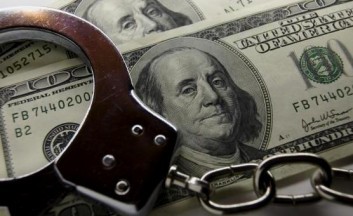The authorities tightened the rules for officials and business
 The situation has not changed
The situation has not changed

Trials and investigations against high-ranking officials and businessmen during the election campaign period will have a pacifying effect on business and will strengthen internal discipline in nomenklatura. The developments show that neither business, nor officials have effective tools to resist the Belarusian authorities.
On September 6th, former Deputy Chairman of the Vitebsk Oblast Executive Committee Leonid Kovalev was sentenced to 7 years’ imprisonment in a maximum security prison with confiscation of property. On September 7th businessman Yuri Dankov was charged with covering up prostitution. On September 10th, the trial against the former head of the Council of the Republic Secretariat, Gleb Bedritsky, charged with corruption, will begin.
The aforementioned events are a random coincidence, but objectively speaking, the authorities are interested in tightening the rules before the elections, not only for the opposition, but also for the officials, to put their loyalty through a test. Therefore these three cases meant to send signals to at least two social groups: officials and businessmen.
In particular, the former deputy chairman of the Vitebsk Oblast Executive Committee Mr. Kovalev was convicted for large scale bribery while organizing mass entertainment in Vitebsk. The punishment for such a high ranking official has another dimension. In 2005-2008, Mr. Kovalev headed the Belarusian Republican Youth Union therefore the authorities will have an additional argument to strengthen control over the organization if necessary, as it is highly active during the election campaign.
The trial against the former head of the Secretariat of the National Assembly’s upper chamber Mr. Bedritsky will have a disciplinary effect not only on the future members and the staff of the Council of the Republic, but also on the Parliament as a whole. If after these elections some kind of political reform is initiated in Belarus (as Lukashenko previously hinted), the revealed corruption in the Parliament will allow the President to manage new deputies more effectively.
Finally, the arrest of a well known businessman Yuri Dankov, owner of the largest and oldest entertainment complex Dankoff Club in Minsk – irrelevant whether he is guilty or not – will be interpreted by other businessmen as a warning against excessively independent behavior (Mr. Dankov is known for his critical statements about the authorities). Moreover, Mr. Dankov’s arrest – he has long been a deputy of the Minsk City Council and even nominated for the presidency – will have a chilling effect on the former deputies who planned business careers after the elections.
All the three examples also demonstrate that the defendants in these cases have no effective tools to counter the authorities and to protect their interests. In particular, Mr. Bedritsky has written a request to the President asking for release, and Mr. Dankov has stoically accepted the beginning of the investigation and was not trying to start a public campaign in self-defense before the arrest. On the other hand, this is a traditional behavior of Belarusian officials and businessmen.
Subscribe to our newsletter




Situation in Belarus
Constitutional referendum: main consequences


 Video
Video
How to count the political prisoners: are the new criteria needed?


 Video
Video
Paternalism In Decline, Belarusian Euroscepticism, And The Influence Of Russia


 Video
Video












